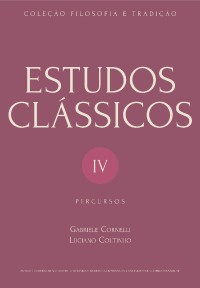Please use this identifier to cite or link to this item:
https://hdl.handle.net/10316.2/44289| DC Field | Value | Language |
|---|---|---|
| dc.contributor.author | Silva, Marco Antônio Lima da | |
| dc.date.accessioned | 2018-10-09T15:19:07Z | |
| dc.date.accessioned | 2020-09-05T08:50:06Z | - |
| dc.date.available | 2018-10-09T15:19:07Z | |
| dc.date.available | 2020-09-05T08:50:06Z | - |
| dc.date.issued | 2018 | - |
| dc.identifier.isbn | 978-989-26-1584-4 (PDF) | |
| dc.identifier.uri | https://hdl.handle.net/10316.2/44289 | - |
| dc.description.abstract | The myth associates wine producing with Dionysus, god of rapture and enthusiasm, who in his youth discovered the vine and firstly sipped his inebriating juice in the company of a vast retinue of nymphs. Apart from theater performances and festivals during the grape harvest, the god was intensely worshipped in symposia: social events that had not only a fun and escapist, but also an educational function in the Athenian polis.The Symposiaká of Plutarch, Greek biographer and moralist philosopher from late century I to early century II of the Christian age, are a reproduction of a series of debates, real or fictional, at table, at symposia, on various topics, some frivolous, others more serious. Those writings integrate the large group of works of convivial theme, which since the fifth century BC emerged and disappeared, except for Plato’s and Xenophon’s. This study aims to investigate the Dionysiac character in the sympotic works, present in wine sipping, as a facilitator for the loving encounter and a creator of favorable conditions to eroticism. | eng |
| dc.description.abstract | O mito associa a produção vinícola a Dioniso, deus do êxtase e do entusiasmo, que em sua infância descobriu a vinha e primeiro sorveu de seu ébrio sumo em companhia de vasto séquito de ninfas. Além das apresentações teatrais e das festas por ocasião da vindima, venerava-se intensamente o deus nos simpósios – eventos sociais que tinham um papel não apenas lúdico e de escapismo, como também educacional na pólis ateniense. Os Symposiaká de Plutarco, biógrafo e filósofo moralista grego da virada do século I para o século II da era cristã, são a reprodução de uma série de debates, reais ou fictícios, tidos à mesa, em simpósios, sobre assuntos variados, uns mais frívolos, outros mais sérios. Tais escritos integram-se, assim, no vasto grupo de obras de tema convivial que desde o século V a.C. surgiram e se perderam, com exceção das de Platão e Xenofonte. Almeja-se com o trabalho ora apresentado investigar nas obras simpóticas o caráter dionisíaco, presente no sorver do vinho, como facilitador do encontro amoroso e criador de condições favoráveis ao erotismo. | por |
| dc.language.iso | por | - |
| dc.publisher | Imprensa da Universidade de Coimbra | por |
| dc.relation.ispartof | http://hdl.handle.net/10316.2/44277 | por |
| dc.rights | open access | - |
| dc.subject | Dionysus | eng |
| dc.subject | Eros | eng |
| dc.subject | Wine | eng |
| dc.subject | Myth | eng |
| dc.subject | Plutarch | eng |
| dc.subject | Dioniso | por |
| dc.subject | Eros | por |
| dc.subject | Vinho | por |
| dc.subject | Mito | por |
| dc.subject | Plutarco | por |
| dc.title | Dioniso alcoviteiro: as tramas de Zagreu no discurso erótico | por |
| dc.title.alternative | Pimp Dionysus: the wefts os Zagreus in the erotic speech | eng |
| dc.type | bookPart | por |
| uc.publication.firstPage | 249 | - |
| uc.publication.lastPage | 275 | - |
| uc.publication.location | Coimbra | por |
| dc.identifier.doi | 10.14195/978-989-26-1585-1_11 | - |
| uc.publication.section | Parte II - Mitológicas | por |
| uc.publication.digCollection | PB | por |
| uc.publication.orderno | 23 | - |
| uc.publication.area | Artes e Humanidades | por |
| uc.publication.bookTitle | Estudos Clássicos IV: percursos | - |
| uc.publication.manifest | https://dl.uc.pt/json/iiif/10316.2/44289/201345/manifest?manifest=/json/iiif/10316.2/44289/201345/manifest | - |
| uc.publication.thumbnail | https://dl.uc.pt/retrieve/11020401 | - |
| uc.publication.parentItemId | 55096 | - |
| uc.itemId | 68273 | - |
| item.grantfulltext | open | - |
| item.fulltext | With Fulltext | - |
| Appears in Collections: | Estudos Clássicos IV: percursos | |
Files in This Item:
| File | Description | Size | Format | |
|---|---|---|---|---|
| dioniso_alcoviteiro.pdf | 577.04 kB | Adobe PDF |  |
Items in DSpace are protected by copyright, with all rights reserved, unless otherwise indicated.
